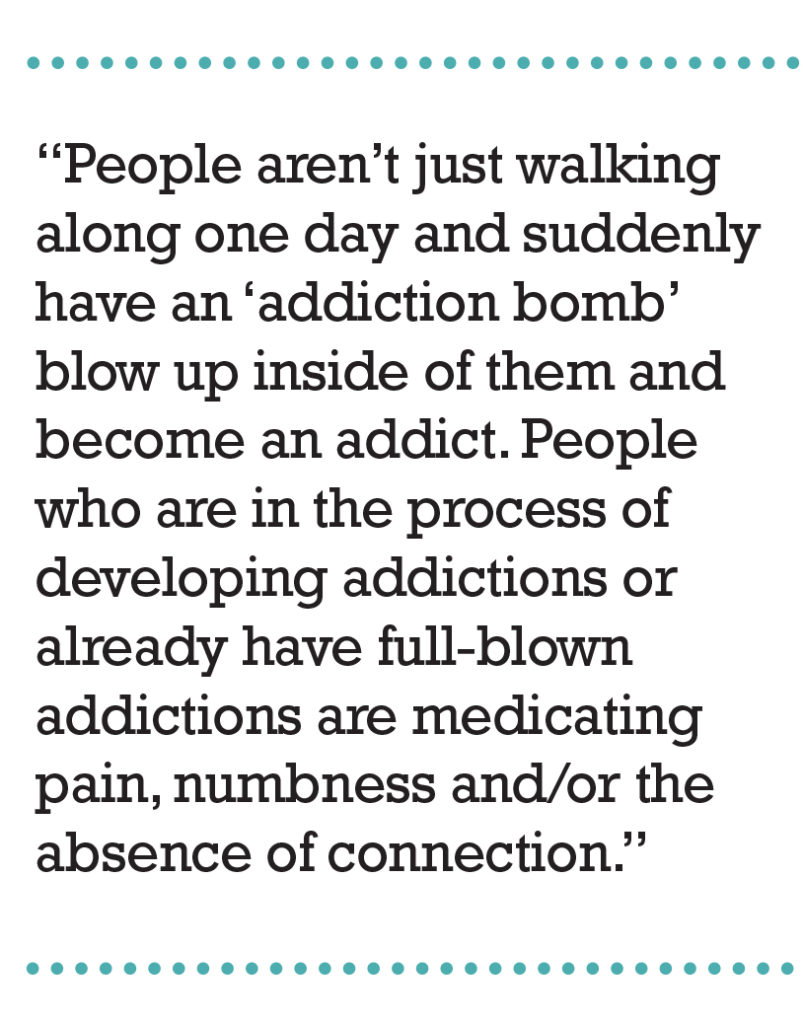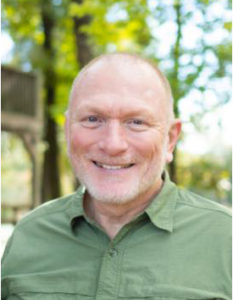by ADRIAN HICKMON, PHD

New hope for addiction prevention and recovery
All families are hit with challenges, crises and tragedies, and those involving our children are the most distressing. If you have not experienced situations at this level, you might be thankful you are not one of “those people who struggle.” I said something similar to a mentor once in my youth and he responded, “Famous last words, young man.” I later discovered he was right.
Every day we hear about tragedies involving adolescents and young adults in battles against substance abuse, pornography, sexual acting out, compulsive video gaming, isolation, self-harm, depression, suicide and, well, you name it. When parents are in such a battle for their child, the situation is often so awful that it’s terrifying even to hope. But hope is the most amazing power in any trial, and I want to share some hope for those dark times.
A paradigm is your perspective on a certain topic or situation. It is what you know about a subject, or think you know. Your paradigm becomes the lens through which you see a situation, understand it, define it, deal with it and interact with it. In other words, “How you see it is how you treat it.”
When a particular paradigm is deeply rooted in a culture, it is very difficult to change — even if the change makes it better, or if the predominant cultural paradigm is incomplete or inaccurate (remember at one time in human history it was a “fact” that the Earth was flat).
When I entered this field 30 years ago, I didn’t have “a dog in the fight” when it came to paradigms, so I didn’t have any turf to guard or point to prove. I didn’t know what was popular or unpopular, politically correct or incorrect. I also wasn’t an immovable object in my own paradigm, but instead I was hungry to stay outside of the box, learn, grow, and find more effective ways to make a difference.
Through the grace of God, in 2001 I started Capstone Treatment Center — a residential program for young adults and adolescents ages 14–26 — and developed the therapy/treatment approach called the Core-Systems Model.
Below are some of its foundational tenets:
◆ Every person is created in God’s image to: 1) love and be loved at a core-to-core level of intimacy with God, self, family, and friends; 2) use unique gifts in meaningful purpose; and 3) live emotionally deeply and fully, joy-to-sorrow, not letting the sorrow steal the joy nor the joy steal the sorrow.
◆ Often, behaviors that we call pathologies, disorders or mental illnesses began as brilliant solutions to unsolvable problems, mostly regarding survival. (Taught to me by Dr. Wendel Ray)
◆ People aren’t just walking along one day and suddenly have an “addiction bomb” blow up inside of them and become an addict. People who are in the process of developing addictions or already have full-blown addictions are medicating pain, numbness and/or the absence of connection.
◆ People aren’t living a “normal” good life and suddenly have a mental disorder jump on them out of nowhere. Behavior that meets criteria for a mental disorder most often makes sense as a survival response to trauma, isolation or emptiness.
For understanding, empathizing or helping a person in a dire circumstance, consider looking through the lens of this question: “What makes this make sense?” Not what makes it good, bad, smart, stupid, wise or foolish, but what could be underneath that behavior, attitude, perspective or feeling.
There are three battlefronts per person and family that we must fight with equal intensity and equal success.
First, the “eruption” (as with a volcano), or the outside face of the battle, the one everybody sees — substance abuse, sexual compulsivity, pornography, video gaming, etc.
Second, the “core” (as with a volcano’s magma pool), the what-lies-beneath-power that underpins the eruption — trauma and/or adverse childhood experiences.
Third, the “context” (the tectonic plates in which the magma core and eruptions originate), the environment in which the first two exist and thrive; family, church and local culture systems with overindulgence and entitlement, unhealed trauma, disconnection, family conflict and unhealthy boundaries.

Why is this information hopeful?
First, because of what it teaches us about prevention! And “prevention” is how we change our children’s and our society’s future. This information helps us as individuals, families and a society to know what children need to be healthy adults. When trauma and adverse experiences happen to a child, instead of thinking they will not remember it, or that time will heal it (which in fact it doesn’t), we could get them help in healing their trauma wounds.
Also knowing that quality time together, touch, laughter, emotional presence, gaze, play, connection, and interaction without distraction (as in smartphones) are the immunizations to addiction. This can help parents to prioritize and pursue these ways of developing stronger attachment and connection bonds to their children.
Second, because of giving better treatment to people who currently have addictions. Understanding that while some part of the origin of addiction may be genetic per individual, there is a substantial body of research that demonstrates the core underlying issues that lead to addiction include unhealed trauma and other adverse childhood experiences, and the absence of attachment or connection in relationships with family and friends.
What produces the best outcomes in addiction treatment? A paradigm that in addition to sobriety and abstinence from the “eruption,” equally focuses on the healing of the core underlying issues.
What if this culture, especially churches, understood and acknowledged that trauma happens to everyone — and that it doesn’t say something negative about the people who go through it? In addition, what if we accepted “healing trauma processes” as normal and beneficial, just as much as eating healthy and exercising regularly?
What if we looked at doing trauma work as the most courageous of endeavors? What if church leaders learned to triage situations with their members, and send chemical addictions to a chemical addictions-trauma-relationship specialist; sexual addictions to a sexual addictions-trauma-relationship specialist; infidelity and other marital issues to a marital specialist who understands trauma?
We would never send a disaster victim with a broken leg to a urologist, or a heart-attack victim to an orthopedic surgeon. But we often do the same thing when dealing with trauma, addiction or marital/family issues by recommending a “Christian counselor” who is a “good listener” but untrained in the specialty.
So how do we end the opioid crisis? How do we win the war on drugs? How do we stop so many people from ruining their lives and the lives of their families with chemical and behavioral addictions?
By each one of us giving our best efforts to love each other and build core-to-core intimacy in our most important relationships; humbly and courageously doing the work necessary to heal our wounds, not avoiding them and trying to act as if they didn’t exist; and supporting others in doing the same.
Amazing, isn’t it? Science has finally discovered that we need connection and deep relationships in order to take on the challenges of this life and live it to the full.
For you, O Lord, are my hope, my trust, O Lord, from my youth. – Psalm 71:5

Dr. Adrian Hickmon is a Licensed Professional Counselor, a Licensed Marriage and Family Therapist, and a Licensed Alcohol and Drug Abuse Counselor. Dr. Hickmon developed the Core Model of therapy, which focuses on chemical and process addictions and compulsions, trauma, attachment, relationship intimacy within the family, and their core underlying issues. For more info, visit capstonetreatmentcenter.com.